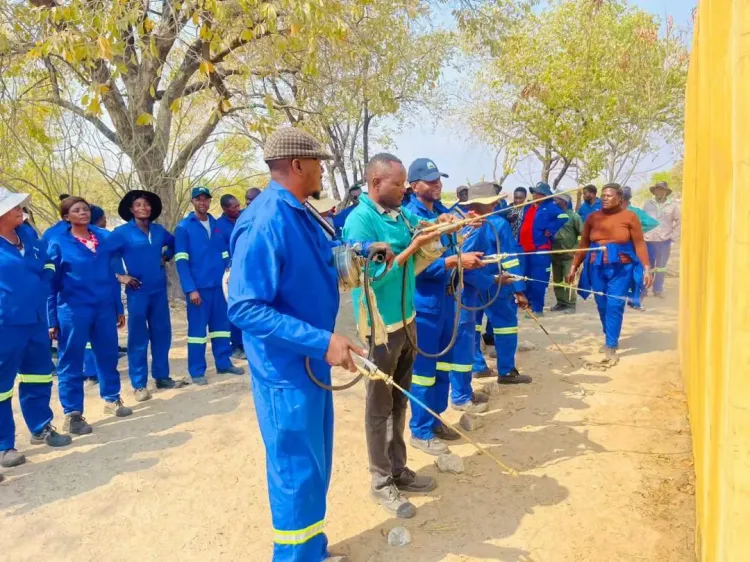Namibia Issues Alert for Malaria Outbreak in Northern Regions Following Case Surge

Windhoek, Dec 24 (NationPress) Namibia's Ministry of Health and Social Services (MoHSS) has issued a warning in light of a significant uptick in malaria cases within the nation's northern areas, reporting 2,210 cases as of December 15.
The outbreak has led to 265 severe cases and nine fatalities between November 4 and December 15, as stated by MoHSS Executive Director Ben Nangombe on Tuesday.
“At least 16 malaria-endemic districts have exceeded the epidemic threshold and are now facing outbreaks,” he mentioned.
The districts impacted include Eenhana, which accounted for 661 cases or 30 percent of the total, followed by Okongo with 336 cases or 15 percent. Other affected districts comprise Outapi, Engela, Nkurenkuru, Oshakati, and Omuthiya, Nangombe elaborated.
As reported by Xinhua news agency, the southern African country experiences seasonal malaria transmission from December to April, largely influenced by rainfall.
The ministry is implementing indoor residual spraying and distributing insecticide-treated mosquito nets to help mitigate infections. It also encourages individuals to “utilize insect repellents, mosquito nets, and wear long-sleeved clothing to shield against mosquito bites.”
Nangombe highlighted that Namibia's geographical closeness to high-burden malaria nations like Angola adds extra risks. “It has been observed that malaria prevalence is elevated among local cattle herders who cross the border with their livestock. They have been identified as a significant factor in the epidemic,” he stated.
The ministry has established strong surveillance systems “to track malaria cases and initiated” an extensive community education campaign to enhance awareness regarding malaria control and prevention.
The World Health Organization indicates that malaria is currently endemic in 10 out of the 14 regions of Namibia, specifically: Kavango East, Kavango West, Ohangwena, Zambezi, Omusati, Oshana, Kunene, Oshikoto, Omaheke, and Otjozondjupa.
The Indoor Residual Spray (IRS) has been the primary vector control strategy employed in Namibia aimed at reducing the adult mosquito population density and lifespan, consequently decreasing malaria transmission.









